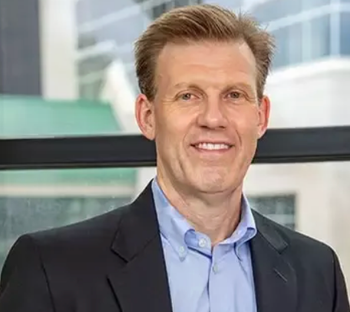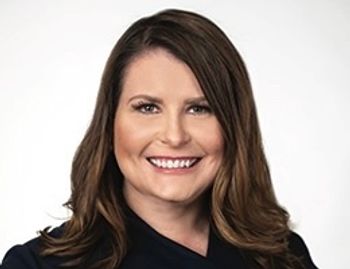
Cleveland Clinic CEO says AI is needed to solve health care’s problems | HLTH 2025

Tom Mihaljevic, MD, says he’s very enthusiastic about AI applications, but he said they need to be designed and implemented carefully.
Las Vegas – The Cleveland Clinic has embedded AI into the organization in a number of ways, and the system appears to be just getting started.
Dr. Tom Mihaljevic, MD, president and CEO of Cleveland Clinic, talked about the system’s incorporation of AI and his enthusiasm for AI tools during a discussion at the HLTH conference Tuesday.
“We at Cleveland Clinic are very enthusiastic about the future of healthcare, in general, and in particular, about AI applications in health care,” Mihaljevic said.
Affordability and access to high quality care are both big, universal issues in health care. And Mihaljevic said, “They cannot be solved unless we embrace artificial intelligence.”
Mihaljevic said he thinks that AI can have a “transformative influence” on both the patient experience and the caregiver experience.
The Cleveland Clinic has been using AI tools to help detect patients who may be at risk for sepsis, allowing providers to begin earlier applications of the appropriate treatment, he said.
And like some other health systems, the Cleveland Clinic has been rolling out AI tools that record patients visits with physicians and provide summaries of the conversations, significantly cutting down the documentation time for doctors.
He described it as one application “that puts smiles on everybody’s faces.” Some physicians were so happy about the time they were saving that they put aside thoughts of retirement, he said.
Mihaljevic said he feels a sense of excitement about AI, as well as a sense of urgency.
“Those of us who have been in health care our entire professional lives, we see so many opportunities with this transformative technology to make the health care delivery better, more accurate. So we're very, very excited,” he said.
Mihaljevic appeared at HLTH last year and said
The Cleveland Clinic is partnering with a host of AI companies. Mihaljevic pointed to the organization’s partnership with Palantir over the past six years. Palantir worked with the Cleveland Clinic to develop a “Virtual Command Center” that uses AI technology to allow clinicians to project patient demand and manage the available beds.
“I would say our collaboration with Palantir has been transformative when it comes to better utilization of our spaces,” Mihaljevic said.
To expand the Cleveland Clinic’s AI capabilities, the organization has tapped some talent from outside the healthcare industry.
“We wanted to have people who have a radically different and transformative perspective,” Mihaljevic said.
“We brought people with a Silicon Valley background who have taught us so much and have contributed tremendously to the work that we've done in this sphere,” he said.
Without a willingness to bring in some outside the industry, he said, “I don't think that anything that we've accomplished in the last four or five years in the digital sphere and AI applications would have been possible.”
At the same time, Mihaljevic said that even as enthusiastic as he is about AI, there needs to be some appropriate caution in its uses with patients.
“Move fast and break things doesn’t work in health care because we are working with people’s lives,” he said.
“We understand that we're not going to be perfect, but there is the level of imperfection that is acceptable, and then there is a level of imperfection that in our line of work is completely unacceptable. It’s a delicate, delicate balance, but the safety of our patients … that’s non-negotiable.”
Alexis Kayser, Newsweek’s health editor, led the discussion with Mihaljevic and asked if he is concerned about inequities between health systems that have access to AI tools and those who don’t.
Mihaljevic pointed to the fragmentation of the healthcare industry as a problem.
To avoid the situation where there are big gaps between hospitals, he said, “I do believe that the future of AI in health care depends largely on a degree of integration of healthcare delivery systems across the country.”






















































































